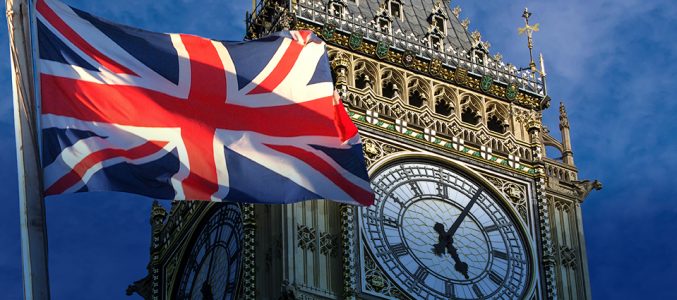Brexit: if you're not at the table, you're on the menu
We are in the final stretch of the countdown to the Brexit referendum—the financial press's moniker for a British exit—with opinion polls suggesting the vote on June 23 will be a close call.

As an economist, I think it is a no-brainer for the United Kingdom to vote to remain in the European Union (EU). A Brexit would likely hamper trade, particularly of financial services; reduce foreign direct investment; and undermine the U.K.'s ability to stem migration. The pound sterling would probably depreciate, inflation would accelerate, and growth would slow, leaving the Bank of England with a difficult decision about whether to prioritize price stability or growth. Exacerbating this economic uncertainty would be political instability, as it could lead to the resignation of the prime minister.
Not everyone will consider these economic arguments first and foremost when they go to vote. The EU is by no means perfect; membership poses some challenges for the United Kingdom, but its best and most likely bet is to try to reform from within.

Choreography is everything
Although there are two sides campaigning for the referendum—the in camps and the out camps—the United Kingdom faces more than just a binary choice regarding its future relationship with the EU. Some of those campaigning for Brexit suggest that a vote to leave the EU would be the starting point for real negotiations on the terms of the U.K.'s EU membership, with the ultimate goal of winning concessions from Brussels and remaining in the union. This idea seems fanciful; it is unlikely that the EU would give the United Kingdom much in the way of concessions, as this could encourage other EU member states to try to follow suit.
If the United Kingdom does leave the EU, there are many possible models it could follow regarding its trade relations with the rest of Europe. Of all the options, the model that Norway has adopted seems the least onerous for the United Kingdom: The country would remain in the European Economic Area and would retain access to the single market, but it would therefore have to apply the rules of the EU's single market system without being able to shape them. This hardly seems like an improvement in negotiating terms. In fact, the saying “If you're not at the table, you're on the menu” comes to mind. The EU would have no incentive to adopt regulations that might benefit U.K. businesses; if the United Kingdom was to adopt the Norway model, it would not have to contribute directly to the EU budget, but it would still pay into structural funds and social and cohesion funds.1
Switzerland and Turkey both offer other possible, albeit unlikely, models for how the United Kingdom could structure a post-EU relationship with the rest of the Continent. A final option for the United Kingdom would be to quit the single market entirely and rely on its World Trade Organization (WTO) membership for trade rules. This option would leave the United Kingdom free from having to impose the full raft of EU regulations, but it does not mean the United Kingdom would not have to impose any regulations; instead, the country would have to devise its own. Foreign direct investment would probably fall significantly, and we believe the WTO model would be the worst of all the options for the United Kingdom.
Controlling borders and migration
The most tangible aspect of the Brexit debate is migration. It has been a long time since anyone murmured angrily about the invasion of “Polish plumbers” in the United Kingdom, but frustration with the idea of migrants taking British jobs—and draining the country's social welfare system—is still alive and well. The statistics don't support this rhetoric, in our view, but it is clearly an issue of concern among voters.
Relatedly, some Brexit supporters argue that the EU has lost control over its external borders and so the United Kingdom should leave the EU to better control its own. The logic behind this argument is debatable; if the flow of migrants to the United Kingdom increases following a Brexit, the country could potentially face an increase in security threats. An independent United Kingdom would remain a member of NATO and a permanent member of the UN Security Council, but it would likely lose its position as one of the major shapers of the EU's weak foreign policy.
Potential shock further afield
Not only is a Brexit bad for the United Kingdom's economy, we think it could potentially pose an existential threat to the country as well. The Scottish National Party held a referendum on Scotland's membership in the United Kingdom in late 2014 and the in vote won by a narrow margin. Scotland is, on average, more pro-European than England, and an exit from the EU could result in another referendum on Scottish independence. The out vote may win in a second Scottish referendum, with Scotland aiming to join the EU. Great Britain's historic relationship with (Southern) Ireland could also suffer, and there is even talk among Irish nationalists of using a Brexit as a pretext to hold a popular referendum on the reunification of Ireland, north and south.
A Brexit could also destabilize the rest of the EU. The union is already plagued by a number of crises, including the spiraling debt, the occupation of Ukraine, and the massive influx of refugees. Several national borders have been reimposed within the union, undermining one of the central tenets of the European project-free movement of labor, capital, goods, and services. Solidarity in the EU has dwindled significantly as member states bicker over how to address these various crises. If one member state peels out of the project, others could follow.
Not the final word
According to many of those in favor of Brexit, EU membership hamstrings the United Kingdom with tough regulations and results in wasteful contributions to EU budgets and various funds. However, these challenges are minor compared with those the United Kingdom faces should it vote in favor of a Brexit. At this point, opinion polls and oddsmakers suggest it is more likely than not that the United Kingdom will choose to stay in the EU-for now, at least. If this happens, which is our base-case scenario, Europe will let out a collective sigh of relief and European policymakers will turn their attention to the myriad of other challenges they are facing. But this relief will likely be short-lived. A narrow victory for the in camp in the United Kingdom is unlikely to silence Britain's Eurosceptics. The country's charged relationship with its European partners will likely continue long beyond June 23.
1 “The Norway Option,” Confederation of British Industry, March 2016.






